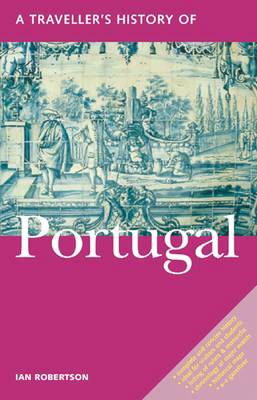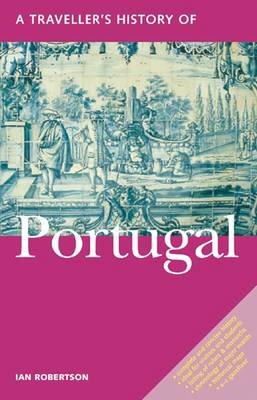
- Afhalen na 1 uur in een winkel met voorraad
- Gratis thuislevering in België vanaf € 30
- Ruim aanbod met 7 miljoen producten
- Afhalen na 1 uur in een winkel met voorraad
- Gratis thuislevering in België vanaf € 30
- Ruim aanbod met 7 miljoen producten
Zoeken
Omschrijving
A definitive concise history of Portugal, from its earliest beginnings right up to the politics and life of the present day. It was not until the twelfth century that Portugal became a country in its own right, having been a Roman colony and then having suffered both Barbarian and Islamic invasions. The golden age of discoveries, the reign and foresight of Henry the Navigator, and great seamen such as Vasco da Gama led to the founding of Portugal's empire and wealth. Troubled times followed: in 1755 Lisbon was virtually leveled by the "Great Earthquake," and the country had hardly recovered its former prosperity when it was overrun by Napoleon's troops at the start of the Peninsular War, to be followed not long after by the Miguelite civil war. The middle decades of the nineteenth century saw the Port Wine trade flourishing, and further expansion into Africa. During the last quarter of the twentieth century, ever since the bloodless revolution of 1974 overthrew the rightwing dictatorship of Salazar, the country has regained its stability, and now takes its rightful place in the European Community. Illustrated with maps and line drawings, the book has a full Historical Gazetteer cross-referenced to the main text that concentrates on the historic sites in a country that has retained its individuality and thus its appeal to the individual traveler.
Specificaties
Betrokkenen
- Auteur(s):
- Uitgeverij:
Inhoud
- Aantal bladzijden:
- 352
- Taal:
- Engels
- Reeks:
Eigenschappen
- Productcode (EAN):
- 9781566564403
- Verschijningsdatum:
- 1/03/2002
- Uitvoering:
- Paperback
- Formaat:
- Trade paperback (VS)
- Afmetingen:
- 126 mm x 200 mm
- Gewicht:
- 222 g

Alleen bij Standaard Boekhandel
+ 30 punten op je klantenkaart van Standaard Boekhandel
Beoordelingen
We publiceren alleen reviews die voldoen aan de voorwaarden voor reviews. Bekijk onze voorwaarden voor reviews.











